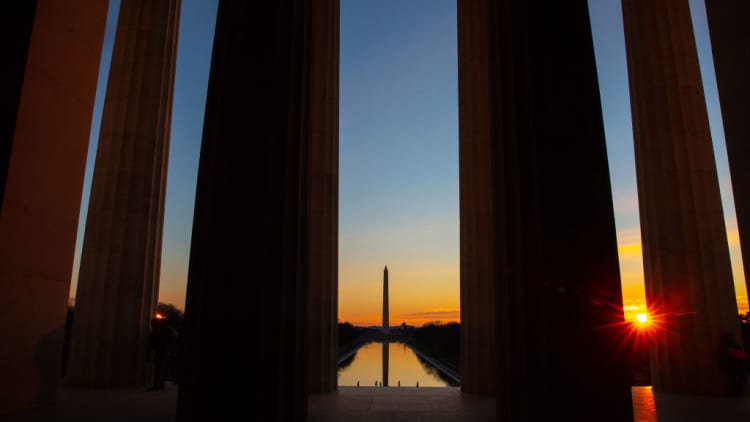President Donald Trump shouldn't expect much support from Americans if he declares a national emergency to build his proposed border wall.
The partial U.S. government shutdown, caused by an impasse over Trump's demand for $5.7 billion to construct the barrier, ended Friday on its 35th day. The president and GOP lawmakers agreed to a plan to fund the government for three weeks without putting money toward the project.
Congress will use that time to try to strike an immigration deal. But Trump has threatened to let funding lapse again or declare a national emergency to circumvent lawmakers if they fail to strike a deal he likes. If the president declares a national emergency, he will likely face immediate court action — and public opposition.
Only 34 percent of Americans think Trump should declare a national emergency in order to use military funding for the wall, according to a Monmouth University poll released Monday. Almost twice as many people — 64 percent — believe Trump should not bypass Congress.

Seventy-one percent of Republicans say Trump should use an emergency declaration. In contrast, 93 percent of Democrats and 66 percent of independents oppose the action.
One poll earlier this month taken during the shutdown found a slight majority of voters did not want Trump to bypass Congress. Thirty-six percent of respondents to a Politico/Morning Consult poll supported an emergency declaration, while 51 percent opposed the move.
Trump has appeared increasingly fixated on circumventing lawmakers to build the wall after Congress repeatedly blocked his demand for funds to build it. Democrats would quickly challenge the move in court. Republican senators, including Marco Rubio of Florida and Chuck Grassley of Iowa, have also warned Trump against declaring a national emergency. On Sunday, Rubio called it a "terrible idea."
"It's just not a good precedent to set," the senator told "Meet the Press."
Even so, GOP Sen. Lindsey Graham of South Carolina has encouraged the president to act.
Democrats, who hold a House majority and need to join with Republicans in the GOP-held Senate to pass legislation, have flatly denied the president's requests to put money toward the barrier. House Speaker Nancy Pelosi and Senate Minority Leader Chuck Schumer have said they would approve money for border security technology and repairs to existing fences — but not a wall as Trump proposes.
Announcing the agreement to end the shutdown on Friday, Trump contended that "we really have no choice but to build a powerful wall or steel barrier."

"If we don't get a fair deal from Congress, the government will either shut down on Feb. 15 again or I will use the powers afforded to me under the laws and the Constitution of the United States to address this emergency," Trump said.
The current government funding runs through Feb. 15. A bicameral, bipartisan conference committee hopes to strike an immigration agreement before that date.
The Monmouth University telephone poll of 805 adults has a margin of error of plus or minus 3.5 percentage points.
The Politico/Morning Consult poll of 1,984 voters has a margin of error of plus or minus 2 percentage points.


